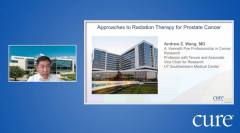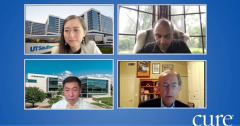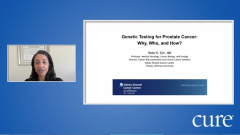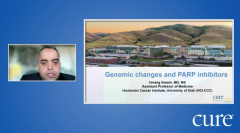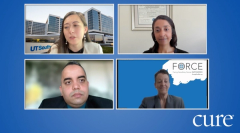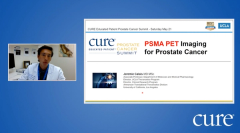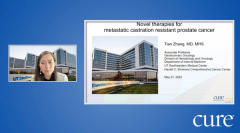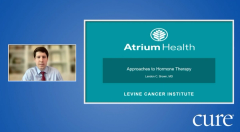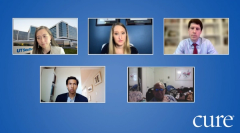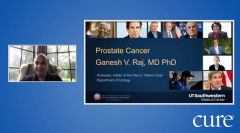
Educated Patient® Prostate Cancer Summit Approaches to Hormone Therapy Presentation: May 21, 2022
Watch Dr. Landon C. Brown, from Atrium Health Levine Cancer Institute, discuss approaches to hormone therapy, during the CURE Educated Patient Prostate Cancer Summit.
Episodes in this series

The suppression of testosterone levels — known as androgen-deprivation therapy, or ADT — is a common and effective method for treating prostate cancer. However, while ADT can help disease go into remission, it is not without side effects, explained Dr. Landon C. Brown, a medical oncologist at Atrium Health Levine Cancer Institute.
“The ultimate goal of these medicines is to lower testosterone levels, or the testosterone’s ability to activate prostate cancer… They are not medicines that on their own can cure prostate cancer, but they can be very effective in a lot of men at putting the cancer into remission or putting it to sleep,” Brown said in an interview with CURE®.
The use of ADT can vary depending on the staging of the prostate cancer, Brown explained. For example, for patients with high-risk cancer, meaning that they have a heightened risk of the recurrence in the future, hormone therapy may be given alongside radiation treatment, whereas that is not typically done for patients with low-risk prostate cancer. For metastatic prostate cancer, hormone therapy is the “cornerstone” of treatment, as it can decrease their prostate-specific antigen (PSA) levels, improve symptoms and extend life for patients with the disease.
When making a prostate cancer treatment plan, it is also important that patients and their clinicians consider other health complications as well as the risk for side effects.
The most common side effects from ADT include hot flashes and fatigue, though these can be mitigated by exercise, according to brown. Exercise — and in particular weight training — and maintaining a healthy diet is also important for men undergoing ADT, as changing hormone levels can slow down the metabolism and put patients at a higher risk for weight gain, and then all the potential health complications that come with being overweight, such as diabetes and heart issues.
Also, since ADT inhibits the production of testosterone, men can also experience sexual issues, namely erectile dysfunction and loss of libido (sexual desire).
“This can be managed through a number of approaches, including some talk therapy, as well as medication interventions that patients can talk to their doctors about,” Brown said.
With sexual dysfunction and decreased testosterone, men can also feel a loss of their identity, which can manifest as depression, Brown said, emphasizing the importance of men talking with their doctors if they are experiencing this so that the right medical and/or psychological decisions can be made.
“I do think that there is, for a lot of men, an inherent identity that goes along with the fact that we’re giving medicines that remove testosterone from their body. And obviously, that is an important male hormone for a number of functions,” Brown said. “I think it’s probably not talked about as much as it should be.”
When patients meet with their cancer care team, there is often a focus on the actual treatment of the cancer, but addressing these side effects and psychosocial issues is important, too, especially as new treatments help men with the disease live much longer.
“The longer men live, they tend to have to deal with certain side effects, so I think it’s really important to talk about those things early and really be proactive about it,” Brown said. “If men are on these treatments for a long period of time, we are (hope to) keep them healthy and having a good quality of life and doing all the things they want to do for as long as possible.”
For more news on cancer updates, research and education, don’t forget to

